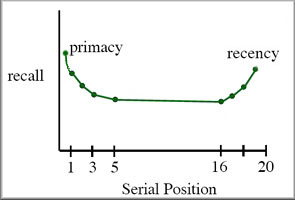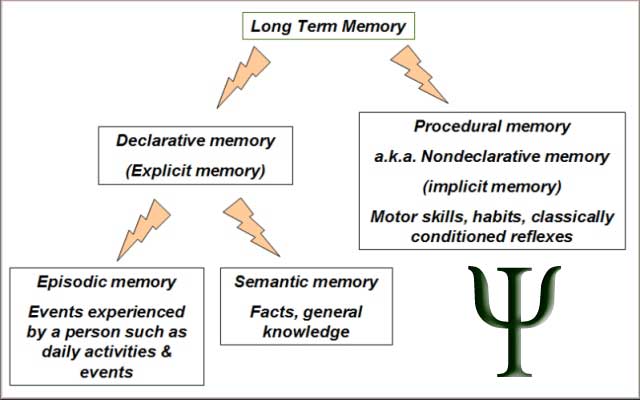









|
|
Steps in the memory process:1. Sensory memory
|
Ψ Features of long-term memory• Has infinite capacity & permanence.
|
|
Declarative Memory
• Declarative memory is the aspect of long term-memory that stores facts & events. It applies to standard textbook learning & knowledge. It is based on pairing the stimulus & the correct response, e.g. the question "What is the capital of England?" and the answer "London". The name declarative comes from the fact that we can explicitly "ask" our brain to make a connection between a pair of stimuli. Declarative memory is subject to forgetting & requires repetition to last for years. Declarative memories are best established by using active recall combined with mnemonic techniques & spaced repetition.
Long-term declarative memory types:
• Episodic memory - represents our memory of events & experiences in a serial form. It is from this memory that we can reconstruct the actual events that took place at a given point in our lives.
• Semantic memory - is a structured record of facts, concepts, words, definitions, language rules & skills that we have acquired. The information in semantic memory is derived from that in our own episodic memory, such that we can learn new facts or concepts from our experiences.
Procedural or Nondeclarative memory - provides for retention of skills not requiring conscious thought.
While declarative memory involves conscious recollection of information (such as explicit rules of a task), nondeclarative (procedural) memory involves the development of familiarity & improved performance on a task after repeated exposure or practice. Learning a skill involves a transition from a task that relies on declarative memory to a more automatized task that relies on nondeclarative memory.
Ψ Long-term Memory Organization
|
General Psychology Robert C. Gates 
|



